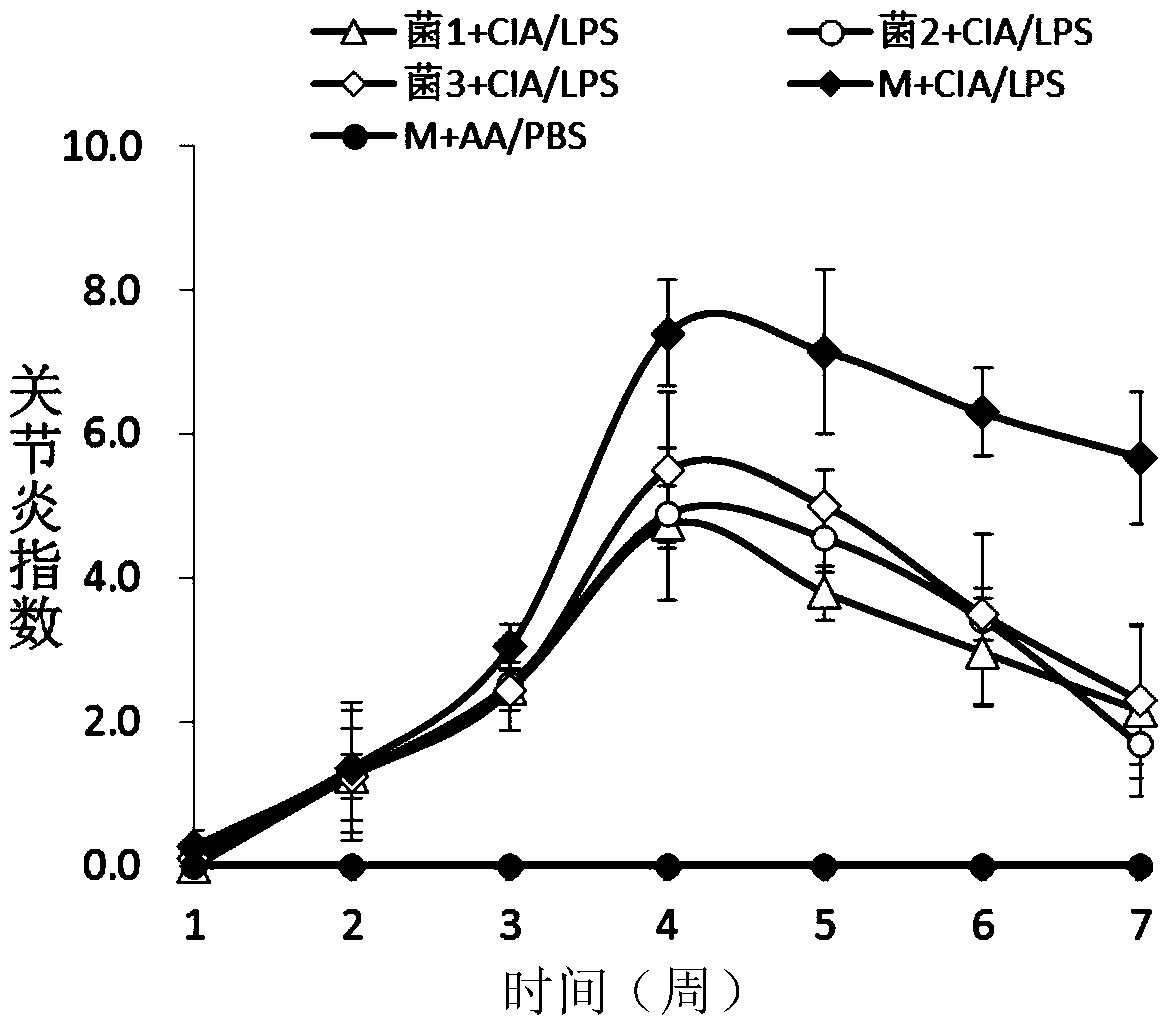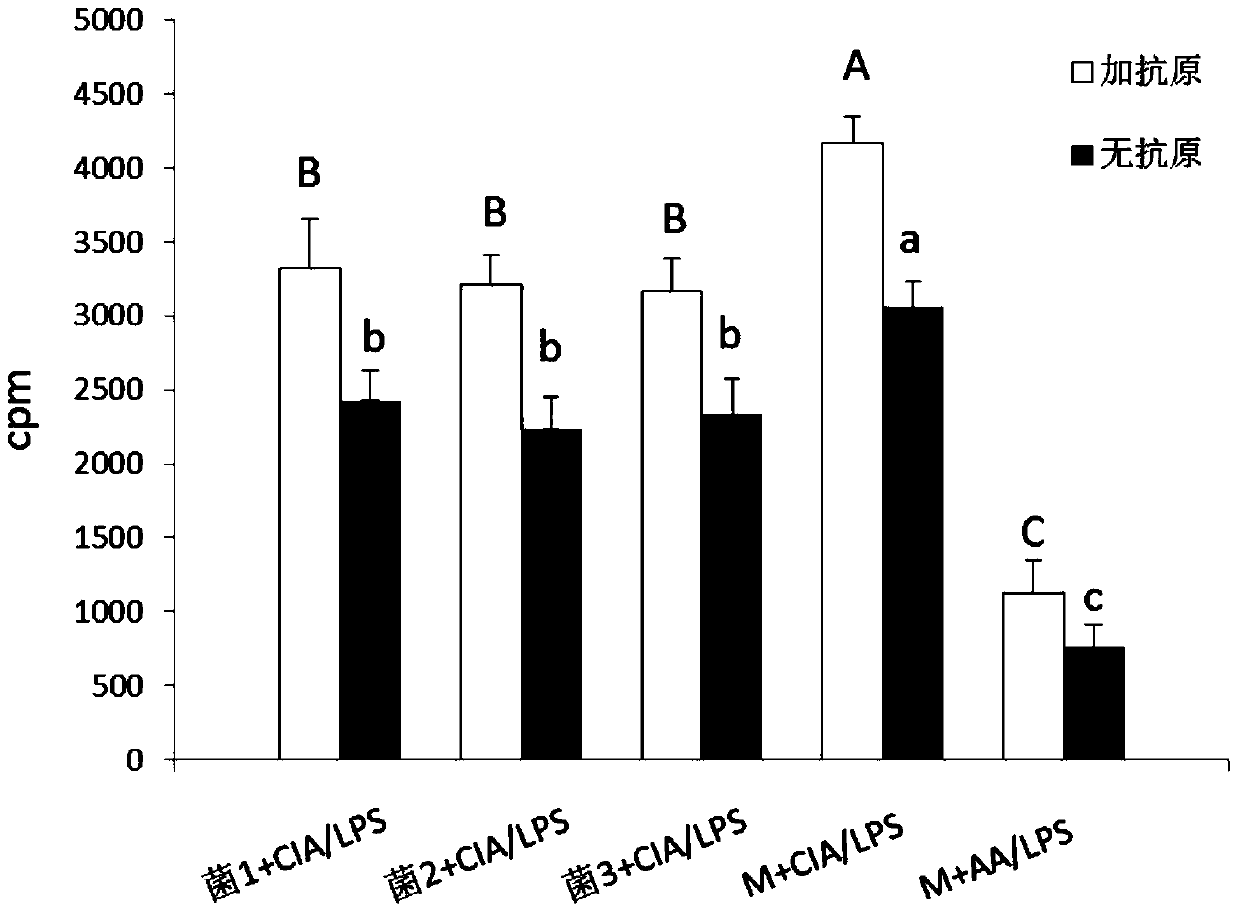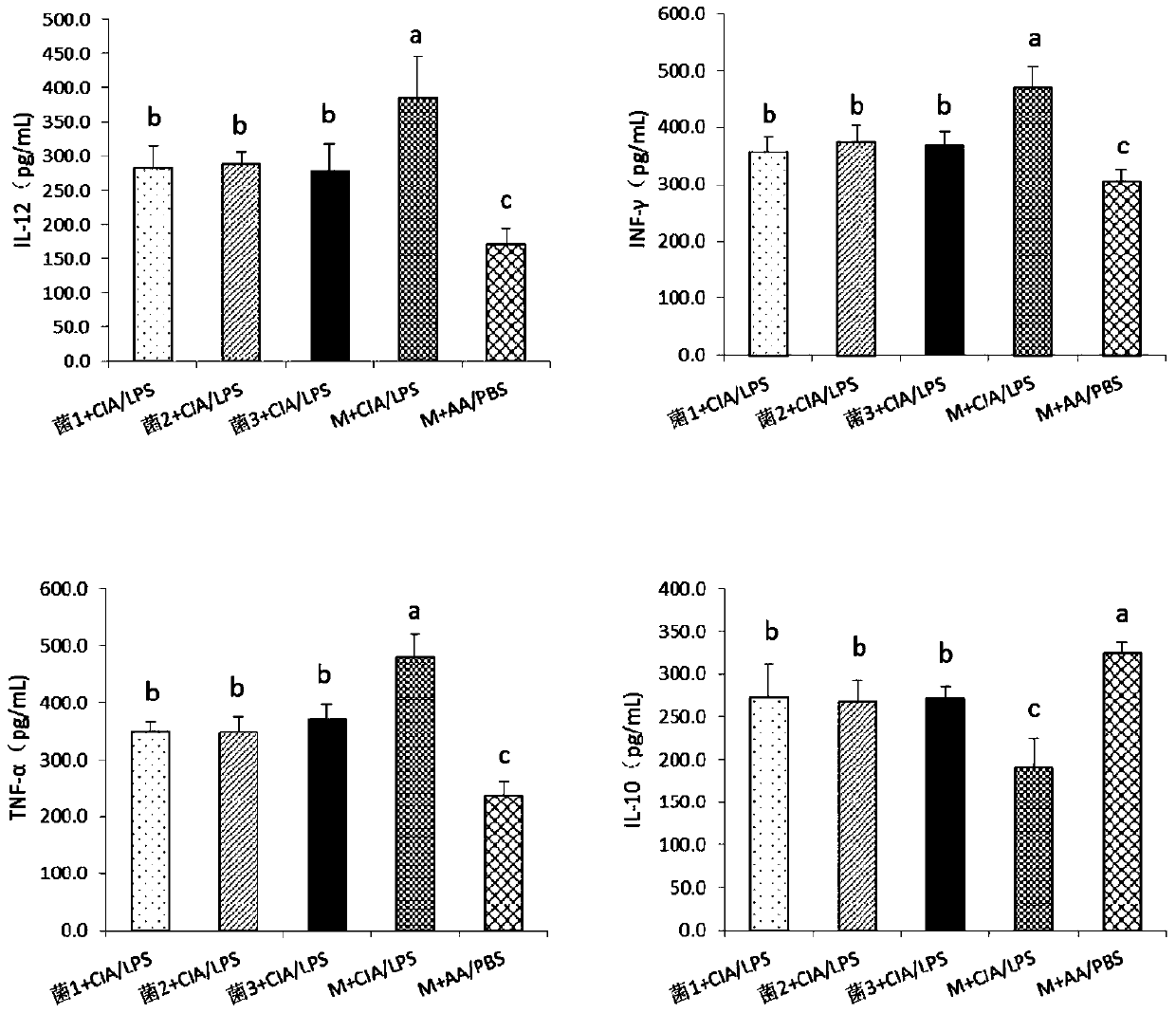Application of Parabacteroides faecalis in the treatment or prevention of rheumatoid arthritis or related diseases
A technology of Parabacteroides faecalis, rheumatoid, applied in the field of microbiology, can solve the problem of no effective treatment or cure
- Summary
- Abstract
- Description
- Claims
- Application Information
AI Technical Summary
Problems solved by technology
Method used
Image
Examples
Embodiment 1
[0069] Example 1 Determination of beneficial bacteria for treatment or prevention of rheumatoid arthritis
[0070] 1.1 Sample collection and DNA extraction
[0071] A total of 212 samples of feces, tartar and saliva were collected from Peking Union Medical College Hospital. The sample information is shown in Table 1. Among them, they were divided into training group and test group. The training group included 157 volunteers, of which 77 were untreated RA cases and 80 were healthy individuals (controls). In the test group, 34 volunteers formed 17 "case-healthy" pairs, 8 of which were related by blood, and the other 9 pairs were not related by blood; the other 21 volunteers treated RA cases with DMARD (disease-modifying antirheumatic drugs) .
[0072] Fecal samples were collected and transported frozen and quickly transferred to -80°C for DNA extraction (refer to Qin, J. et al. A metagenome-wide association study of gut microbiota in type2diabetes. Nature 490, 55–60 (2012)). ...
Embodiment 2
[0098] Example 2 Animal experiment verification
[0099] In order to verify that Example 1 determines the beneficial bacteria for the treatment or prevention of rheumatoid arthritis in Table 2, Table 3, Table 4, and Table 5, the inventor conducts animal experiments for each bacterial species, and uses the available bacterial strain verification of the bacterial species its efficacy.
[0100] experimental method
[0101] 1. Modeling and administration
[0102] 6-8 weeks old SPF (Specific pathogen free) grade male DBA / 1J mice were purchased from the Shanghai Experimental Animal Center of the Chinese Academy of Sciences and raised in the IVC (individual ventilated cage) mouse cage system (purchased from Suzhou Fengshi Experimental Animal Equipment Co., Ltd. ), the indoor temperature was kept at 22-24°C, the humidity was 40%-60%, the light was 12 hours a day, and food and water were free to eat. After 2 weeks of adaptive feeding, they were randomly divided into 5 groups (model ...
PUM
 Login to View More
Login to View More Abstract
Description
Claims
Application Information
 Login to View More
Login to View More - R&D
- Intellectual Property
- Life Sciences
- Materials
- Tech Scout
- Unparalleled Data Quality
- Higher Quality Content
- 60% Fewer Hallucinations
Browse by: Latest US Patents, China's latest patents, Technical Efficacy Thesaurus, Application Domain, Technology Topic, Popular Technical Reports.
© 2025 PatSnap. All rights reserved.Legal|Privacy policy|Modern Slavery Act Transparency Statement|Sitemap|About US| Contact US: help@patsnap.com



